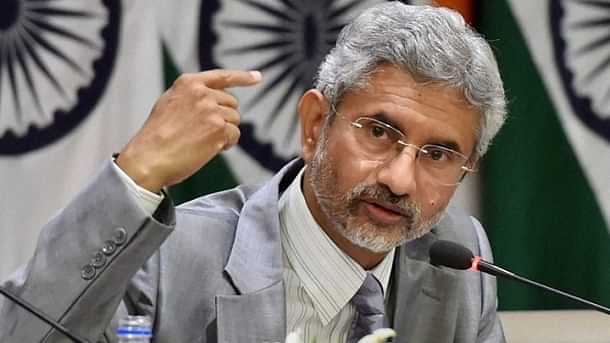In the contemporary geopolitical landscape, India's unwavering commitment to combating terrorism and resisting nuclear intimidation has garnered significant attention. External Affairs Minister S. Jaishankar's recent statements in Germany underscore this resolute stance, emphasizing India's policy of zero tolerance towards terrorism and its refusal to yield to nuclear blackmail. These declarations come in the wake of escalating tensions and underscore India's strategic approach to national security and regional stability.
India's firm position against terrorism is not a recent development but a consistent policy reinforced over the years. The recent Pahalgam terror attack, which resulted in the loss of 26 civilian lives, including 25 Indians and one Nepali, has further solidified India's resolve. In response, India launched 'Operation Sindoor,' targeting nine terrorist infrastructure sites in Pakistan and Pakistan-occupied Jammu and Kashmir (PoJK). The operation was characterized by precision and restraint, focusing solely on terrorist hideouts while avoiding civilian casualties and military installations .
Minister Jaishankar, during his visit to Germany, reiterated this stance, asserting that "India has zero tolerance for terrorism" and will not succumb to "nuclear blackmail," a veiled reference to cross-border terrorism backed by Pakistan . He emphasized that India would deal with Pakistan strictly on a bilateral basis, rejecting any external mediation or involvement .
India's refusal to be intimidated by nuclear threats is a cornerstone of its national security policy. Prime Minister Narendra Modi, in his address following Operation Sindoor, firmly stated that India would not tolerate any acts of terrorism conducted under the pretense of nuclear threats. He warned that such actions would be met with a strong and appropriate response . This position underscores India's commitment to maintaining strategic autonomy and ensuring that its security decisions are not influenced by external pressures or threats.
Foreign Secretary Vikram Misri further clarified that during the recent conflict with Pakistan, there was no nuclear signaling, and the conflict remained confined to conventional military engagement. He emphasized India's firm stance on counterterrorism, which includes decisive retaliation against terrorist actions and zero tolerance for nuclear blackmail .
India's firm stance against terrorism has garnered support from the international community. During his diplomatic mission to Europe, Minister Jaishankar engaged with counterparts from Germany, France, Japan, and Qatar, discussing India's approach to cross-border terrorism and expressing gratitude for their solidarity and support . Germany, in particular, expressed support for India's right to defend itself against terrorism, underscoring the importance of international solidarity in combating terror threats .
These diplomatic engagements highlight India's proactive approach to building international consensus against terrorism and reinforcing its commitment to a rules-based global order.
India's policy of addressing issues with Pakistan strictly on a bilateral basis remains steadfast. Minister Jaishankar emphasized that there should be no confusion regarding this stance, asserting that India's foreign policy decisions, particularly concerning Pakistan, will be handled independently and without external interference . This approach reinforces India's sovereignty and its commitment to resolving regional issues through direct dialogue, devoid of third-party involvement.
India's unwavering stance against terrorism and its refusal to yield to nuclear intimidation underscore its commitment to national security and regional stability. Through decisive actions like Operation Sindoor and proactive diplomatic engagements, India continues to assert its position on the global stage, advocating for a zero-tolerance approach to terrorism and reinforcing its strategic autonomy. As the international community grapples with the challenges of terrorism and regional conflicts, India's policies serve as a testament to its resolve and its role as a responsible global actor.
Key Takeaway
In the contemporary geopolitical landscape, India's unwavering commitment to combating terrorism and resisting nuclear intimidation has garnered significant attention. External Affairs Minister S.
